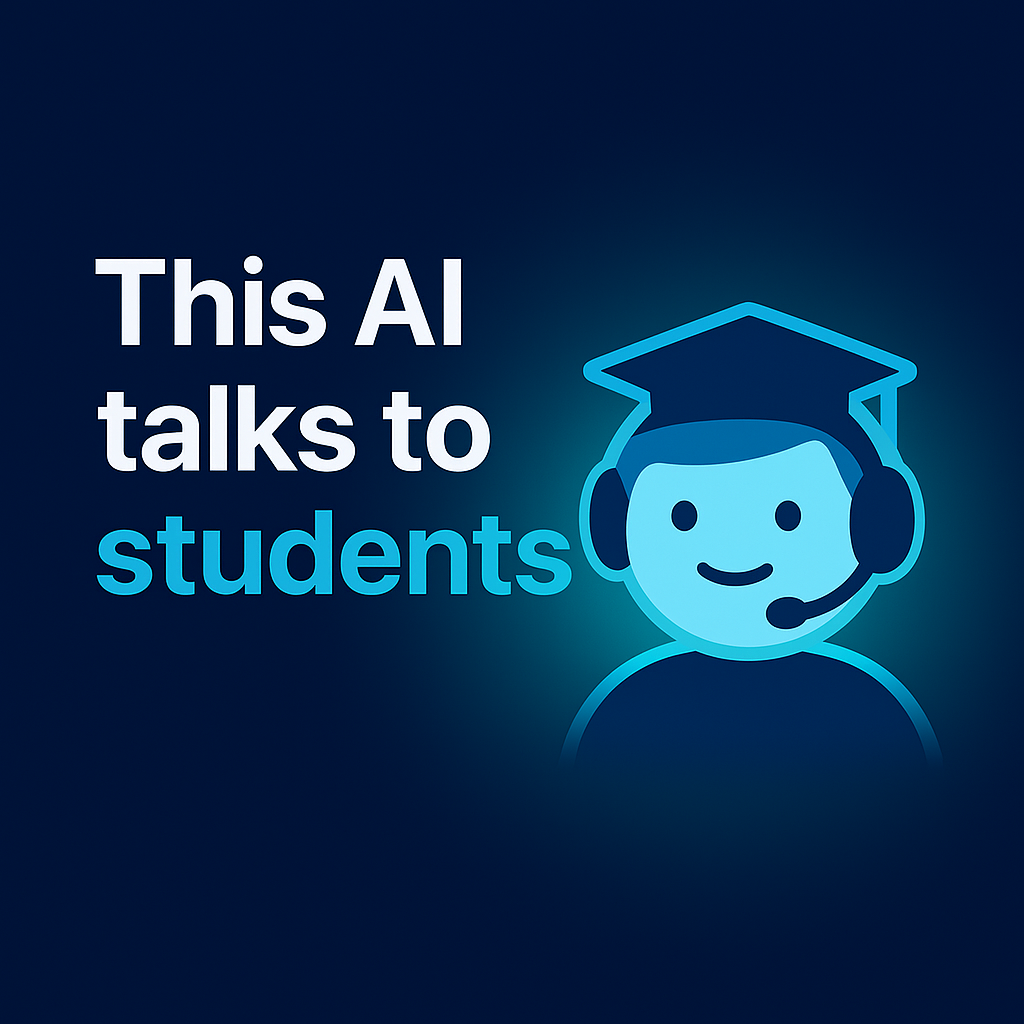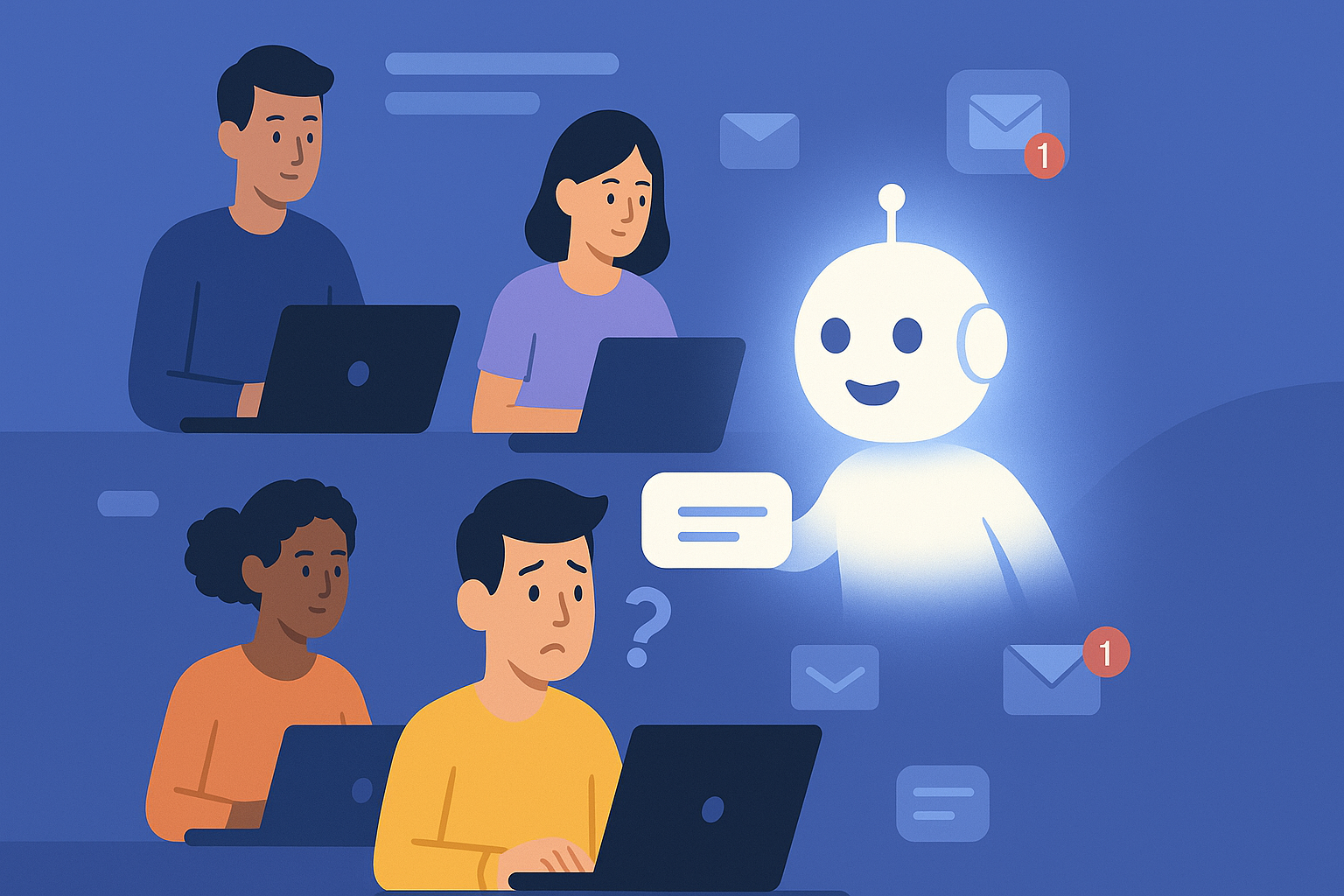Can AI Replace Human Mentors?
 Colaberry School
·
2 minute read
Colaberry School
·
2 minute read
At Colaberry, mentorship isn’t just a support function—it’s the backbone of our student success model. But as our enrolment grew, a clear gap started to appear. Our mentors were stretched thin, and students who needed help weren’t always getting it in time.
We knew something had to change.
That’s when we started building our AI-powered mentor system. But not with the goal of replacing humans—instead, we aimed to amplify what human mentors do best, and automate the rest.
Here’s what we learned along the way

Prefer listening over reading?
listen to our podcast below:
What AI Can Do Brilliantly
AI may not have a human face, but it has superpowers in speed, scale, and precision. Here's what it brought to our mentorship model:
-
It never misses a signal.
Human mentors often rely on visible cues or scheduled check-ins. Our AI system continuously scans behavioural data—login frequency, assignment submissions, forum activity—and detects early signs of disengagement that no human could catch in real-time. -
It reaches out instantly.
Once a trigger is detected—say, no logins in 5 days—the AI sends a pre-trained, empathetic message tailored to the student’s pattern. Instead of waiting for students to ask for help, the system initiates conversations exactly when they’re needed most. -
It scales without stress.
Whether it's 100 or 10,000 students, AI doesn’t burn out. It can monitor and engage thousands of learners simultaneously, ensuring nobody falls through the cracks just because there weren’t enough people to check in manually.
In short, AI brings consistency, responsiveness, and reach that would take an entire team to replicate manually.

But Here’s What AI Can’t Replace
Despite all its strengths, AI has clear boundaries. And we saw them first-hand.
-
Emotional depth.
AI can mimic empathy through language, but it doesn’t truly “feel.” It can’t read subtle tone shifts or body language over a video call. When a student is emotionally overwhelmed, the difference between talking to a machine and a human becomes very clear. -
Complex conversations.
If a student is facing serious personal issues—mental health, financial hardship, or family stress—AI’s responses can feel limited or even tone-deaf. These are moments where only a real mentor, with lived experience and emotional intelligence, can provide meaningful support. -
Guidance beyond patterns.
AI reacts to data. But what if the data looks fine, and yet something’s wrong? A human mentor might sense that in a one-on-one chat. They might dig deeper, offer customized advice, or connect the dots in ways AI can’t.
These limitations helped us understand: AI is powerful, but it’s not a substitute for human connection. It's a complement, not a competitor.

Our Approach: AI Handles the First Mile, Humans Take It Further
The solution we landed on was a hybrid mentorship model.
-
AI is the first responder. It watches behaviour, starts conversations, and triages issues.
-
Human mentors step in when the situation needs more than an automated nudge.
This balance gave us the best of both worlds:
-
Fast, proactive outreach to students showing signs of disengagement
-
Human warmth and problem-solving for students who need deeper guidance
Our team no longer wastes hours chasing dashboards. Instead, they focus only on the students who need real-time support—because AI already filtered the noise.
It’s not just automation. It’s amplification.

What This Means for You
If you’re running a school, university, or training platform, the takeaway is simple:
AI can’t replace human mentors—but it can make your existing team dramatically more effective.
Imagine having a system that:
-
Monitors every student 24/7
-
Sends helpful nudges at the right moment
-
Flags students who need human intervention
-
Frees up your staff to focus on what really matters
That’s not theory—it’s what we’ve built. And now, we want to help you do the same.

Because every student deserves a mentor. And now—with the right design—AI makes that possible.



